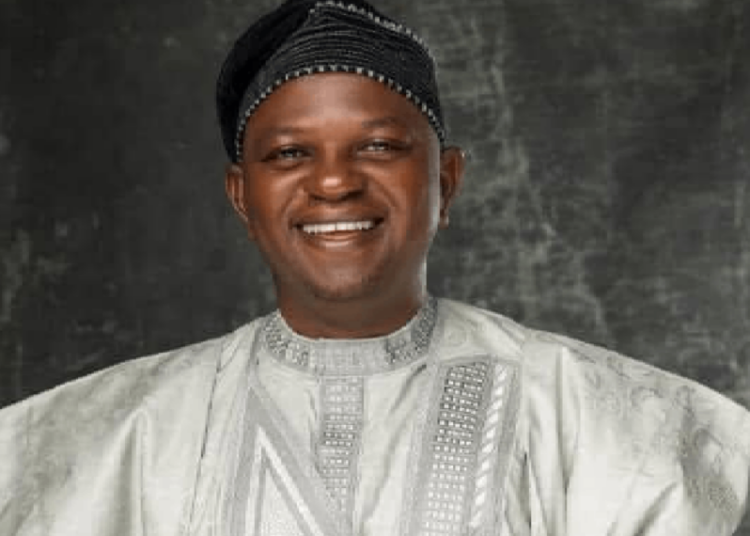The Federal Executive Council (FEC) has approved N78.350 billion to construct and rehabilitate the Buruku/Gboko Water Supply project in Benue State and the Greater Dutse Water Supply Project in Jigawa State.
Minister of Water Resources and Sanitation Professor Joseph Utsev disclosed this while briefing State House Correspondents on Wednesday at the Presidential Villa after the council meeting presided over by President Bola Tinubu.
“FEC approved the contract award for construction of the Greater Dutse Water Supply Project in Jigawa State at the total contract sum of N59,457,319,900.94.
“Council also approved the contract award for the Rehabilitation of the Buruku/Gboko Water Supply Project in Benue State at N18,893,279,411.42,” Professor Utsev noted.
According to the Minister, both water supply schemes will be powered by Solar energy systems as a deliberate effort to reduce carbon emissions and the impact of climate change.
He explained, “In today’s FEC meeting, the council approved the contract award for the construction of the Greater Dutse water supply project in Jigawa State, which is aimed at serving about 1.5 million people.
“This will be powered using Solar energy to reduce carbon dioxide emission. As you know, this is a key factor in climate change. So, introducing solar energy to power this system can also be eradicated, reducing the menace of flooding in that particular vicinity.”
“Again, FEC approved the contract award for rehabilitating the Burku/Gboko water supply project in Benue State.
“The project in Benue will also be powered by Solar energy. This is envisaged as servicing about 506,000 residents within the Amaladu axis that will spin to Gboko, Ushongo, and other parts of Buruku local government,” the Water Resources Minister added.
Speaking on the intervention of the Federal Government regarding recent incidences of dam collapse in the country, the Minister said that, at the moment, a committee was moving around to assess the state of all critical dams to put them back in shape to avert a recurrence in the future of the impact of flooding.
“Currently, the committee has been constituted into two teams: team A and team B. The team A is now in Bauchi State. They were in Plateau State yesterday. They are in Bauchi now and will be moving to Gombe State. From Gombe State, they will proceed to Adamawa State while Team B moves to Delta State.
“Today, they are in Enugu State and will move to Cross River State. That is how they are moving around, and by God’s grace, we will cover critical dams across the country before we go onto the second phase, where the report will be generated for Nigerians, and briefing will be going out. “
Professor Utsev explained that on September 24, 2024, FEC constituted a technical committee to assess dams across the country, with members including the Minister of Water Resources and Sanitation, the Minister of Information, the Minister of Finance, Budget and National Economy, the Minister of Environment, the Minister of Housing and Urban Development, and the National Security Adviser.
He said the committee was inaugurated on the 2nd of October with a sub-committee constituted.
On his part, Minister of State, Gas Resources Ekperipke Ekpo said the council has reaffirmed its commitment to the widespread adoption of Compressed Natural Gas (CNG) as a safer, cheaper, and environmentally friendly alternative to traditional fuel. This was announced by the
The President established a Presidential Committee on CNG to oversee the project, and according to Minister Ekpo, significant progress has been made.
“CNG has come to stay, and we must follow that route because it is safe, cost-effective, and protects the environment,” he said.
The President has also mandated converting filling stations across the country into CNG-compatible stations.
These stations will offer conversion kits to allow vehicle owners to switch to CNG, significantly reducing fuel costs.
“With CNG, you can purchase fuel at around N200 per litre, compared to N1000 for traditional fuel, saving N800 per litre,” Ekpo noted.
Also, Minister of State for Petroleum Resources Heineken Lokpobiri said the council approved a major initiative to boost science education in Nigeria, following a memo presented by the Petroleum Technology Development Fund (PTDF).
The initiative, part of the PTDF’s STEM (Science, Technology, Engineering, and Mathematics) program, seeks to address deficiencies in key science subjects at the secondary school level.
Minister Lokpobiri explained that the PTDF program will involve printing 1 million science textbooks in Physics, Chemistry, Biology, Mathematics, and Computer Science.
These textbooks will be distributed across Nigeria’s 774 local government areas, supporting all 104 federal unity schools and 122 special schools.
“This is part of our efforts to match global technological and engineering development standards by building capacity at the secondary school level,” Lokpobiri stated.
He emphasised the importance of laying a solid foundation for future growth in the oil and gas industry and other critical sectors.
Additionally, the Minister highlighted a recent FEC-approved PTDF project to build digital and physical libraries in 1,000 secondary schools nationwide.
This initiative complements the textbook program and aims to enhance physical and digital learning resources.
The PTDF, established by law, has a mandate to develop Nigerians’ capacity in the oil and gas industry, and these educational projects are a vital part of its long-term strategy to equip future generations with the necessary skills for technological advancement.
Leadership














